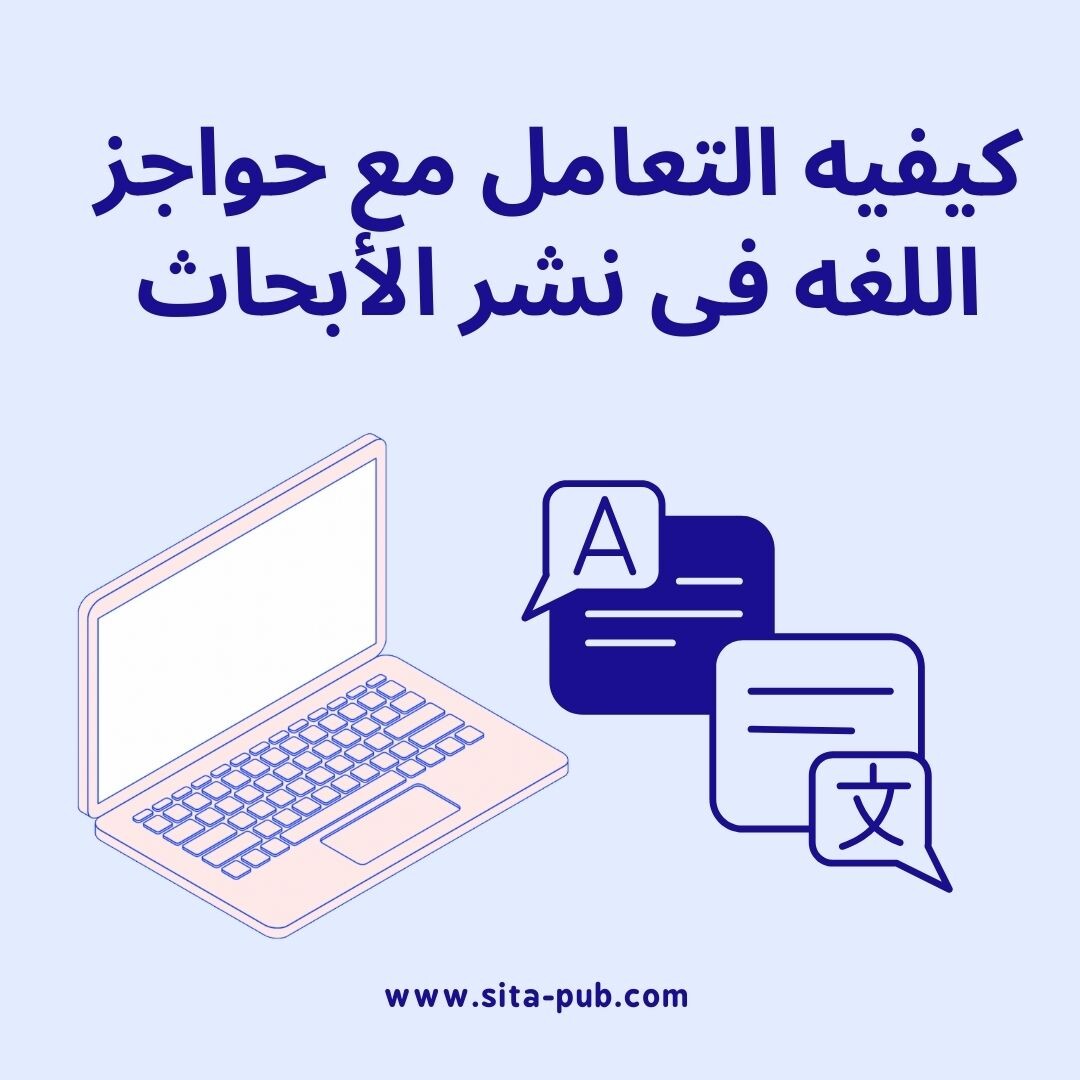کیفیه التعامل مع حواجز اللغه فی نشر الأبحاث


فی عالم البحث العلمی العالمی الیوم، یعمل الباحثون غالباً معاً من دول مختلفه ویتحدثون لغات متنوعه. ومع ذلک، قد تخلق حواجز اللغه تحدیات فی عملیه نشر الأبحاث، مما یؤثر على وضوح إیصال الأفکار. یقدم هذا المقال استراتیجیات بسیطه لتجاوز هذه العوائق، مما یضمن أن یفهم جمهور أوسع أبحاثک.
تحدث حواجز اللغه عندما لا یکون الباحثون متمکنین من اللغه المستخدمه فی النشر، والتی غالباً ما تکون اللغه الإنجلیزیه. فإذا لم تکن الورقه البحثیه مکتوبه بلغه إنجلیزیه واضحه وعلى مستوى اللغه الأم، فقد یتم رفضها من قِبل المجلات العلمیه. حتى المتحدثین الجیدین بالإنجلیزیه قد یواجهون صعوبه مع المصطلحات المحدده أو أنماط الکتابه الأکادیمیه، مما یجعل العملیه أکثر تحدیاً.

یُعد التواصل الواضح فی البحث العلمی أساسیاً لعده أسباب:
الاندماج: الکتابه الواضحه تحافظ على اهتمام القارئ.
التأثیر: الأفکار المشروحه بشکل جید تؤثر على القرارات والأبحاث المستقبلیه.
التعاون: التواصل الجید یسهل التعاون بین باحثین من خلفیات متنوعه.
بمعالجه حواجز اللغه، یمکنک تحسین هذه الجوانب وجعل أبحاثک أکثر وصولاً للقراء.

إذا لم تکن الإنجلیزیه لغتک الأم، ففکر فی الخیارات التالیه:
التحق بدورات لغویه: شارک فی دورات ترکز على الکتابه الأکادیمیه باللغه الإنجلیزیه.
استخدم تطبیقات اللغه: جرب تطبیقات مثل Duolingo أو Babbel لبناء المفردات وتحسین القواعد.
اقرأ الأوراق البحثیه: قراءه مقالات ضمن مجالک تساعدک على التعرف على المصطلحات والأسالیب الشائعه.

اللغه الأکادیمیه لا تحتاج لأن تکون معقده. إلیک بعض النصائح:
تجنب المصطلحات المعقده: استخدم الکلمات الشائعه ما لم یکن هناک ضروره لاستخدام مصطلحات تقنیه.
الجمل القصیره: قسم الأفکار المعقده إلى جمل قصیره.
استخدم صیغه المبنی للمعلوم: تجعل الکتابه أکثر وضوحاً.

العمل مع الآخرین یمکن أن یوفر رؤى قیمه:
انضم إلى مجموعات کتابه: شارک أو أنشئ مجموعات یراجع الأعضاء فیها أعمال بعضهم البعض.
تحریر الأقران: اطلب من زملائک مراجعه ورقتک وتقدیم ملاحظات حول اللغه والوضوح.

تحسین المخطوطه: تصحیح الأخطاء النحویه والأسلوبیه وزیاده الوضوح.
مواکبه معاییر المجلات: ضمان تلبیه ورقتک لمتطلبات المجلات وتقلیل فرص الرفض.

الورقه المنظمه تسهل قراءتها:
أنشئ مخططاً أولیاً: ساعد نفسک على ترتیب الأفکار بشکل منطقی.
اتبع قواعد التنسیق: تأکد من اتباع إرشادات التنسیق الخاصه بالمجله المستهدفه.
استخدم العناوین الفرعیه: لتسهیل متابعه القارئ للأقسام المختلفه.

فهم الفروقات الثقافیه یمکن أن یساعدک:
انتبه للفروق الدقیقه: تجنب استخدام العبارات الاصطلاحیه أو الأمثال التی قد لا تترجم بشکل جید.
احتضن وجهات النظر المتنوعه: التعاون مع باحثین من خلفیات مختلفه یعزز جوده البحث.

تحسین مهارات اللغه والکتابه یحتاج إلى وقت. استمر فی التعلم من خلال:
حضور ورش عمل للباحثین: التحق بدورات ترکز على الکتابه الأکادیمیه وتحسین المهارات اللغویه.
القراءه الواسعه: قراءه أوراق بحثیه متنوعه للتعرف على أنماط کتابه مختلفه.
متابعه التطورات: البقاء على اطلاع بالتغیرات فی ممارسات الکتابه الأکادیمیه.


إذا کنت بحاجه إلى المساعده، نقدم لک خدمات تحریر أکادیمی باللغه الإنجلیزیه بواسطه محررین محترفین من أهل اللغه. نحن ملتزمون بمساعدتک فی رفع جوده ورقتک البحثیه لتلبی أعلى المعاییر وتکون مقبوله على مستوى العالم. لا تدع حواجز اللغه تحد من نجاحک.
إذا کان لدیک أی أسئله، استفسارات، أو ترغب فی معرفه المزید عن خدماتنا، فلا تتردد فی التواصل معنا. فریقنا المخصص مستعد لمساعدتک.